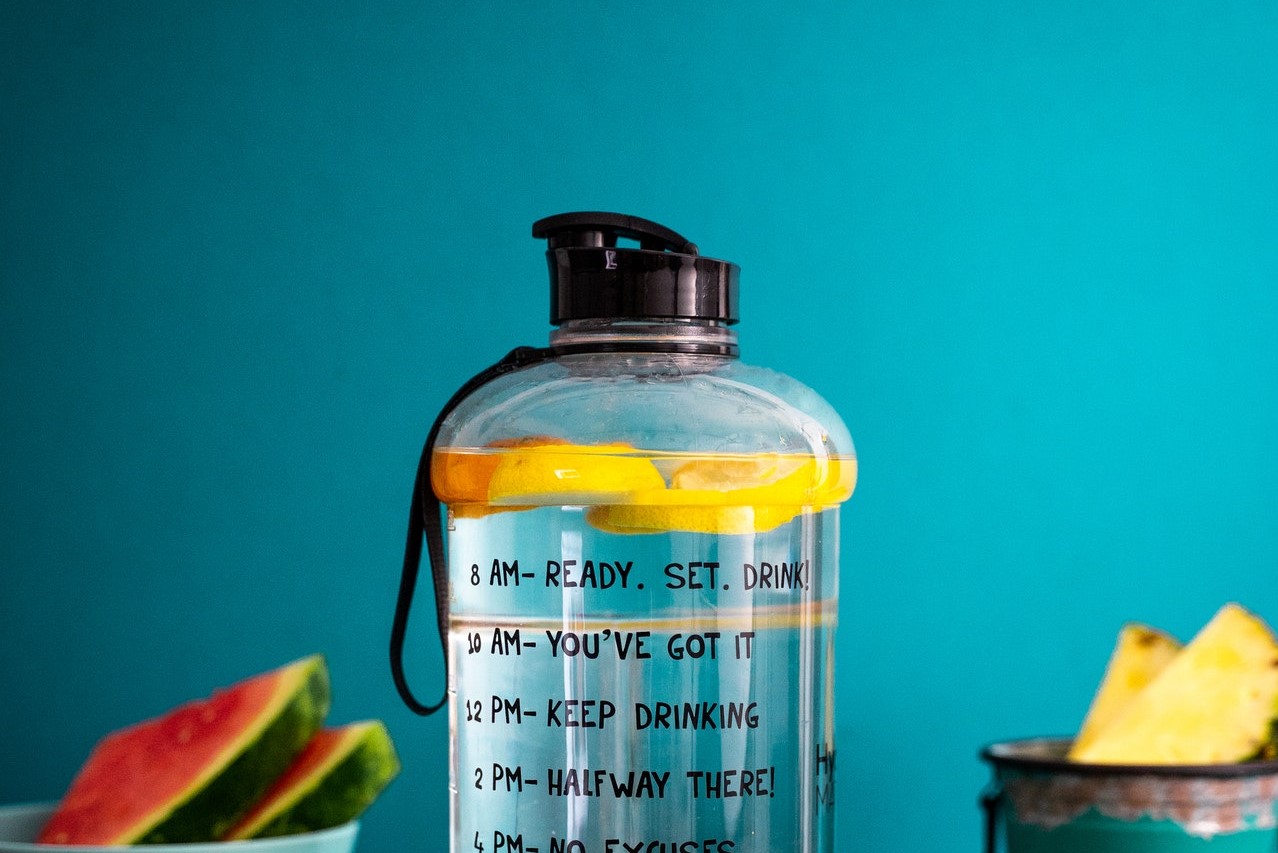Last Updated on 3 years ago by By Chiic Magazine
Stay Hydrated – Water helps regulate body temperature, lubricate joints, transport nutrients, remove waste and circulate blood. That means your body can’t properly perform these functions if you are dehydrated, which happens when you lose more fluids than you take in. You can become dehydrated from sweating, vomiting, experiencing diarrhea, or taking diuretic medications that increase fluid loss. It is, therefore, important to rehydrate after any activity that causes heavy sweating, such as an intense workout, walking under the sun, etc.
Rehydrating is also crucial for preventing the damaging effects of dehydration if you have the stomach flu or are recovering from a night of drinking. Certain populations are more prone to dehydration than others, including children, older adults, and people with certain medical conditions like diabetes and kidney disease. The signs and symptoms of dehydration include increased thirst, dry mouth, infrequent urination, dry skin, tiredness, dizziness, headache, etc.
Urine color is also a common indicator of your hydration status. Generally, the paler the color, the better hydrated you are. That said, the color can change for reasons other than your hydration status, including diet, the use of certain medications, and some medical conditions.
Here are the tips on to stay hydrated to protect the organs in your body.
1. Take a Lot of Water
While it likely comes as no surprise, drinking water is most often the best and cheapest way to stay hydrated and rehydrate. There is no doubt about it.
Unlike many other beverages, water contains no sugar or calories, making it ideal to drink throughout the day or specifically when you need to rehydrate, such as after a workout.
2. Don’t Wait Till You Are Thirsty to Drink
By the time you feel thirsty, you are already slightly dehydrated. Sip water steadily throughout the day and drink more fluids than usual when the weather is hot, especially if you are active.
3. Add Flavor to Your Water
If plain water doesn’t taste so good to you, you can add flavor with fresh fruits or a splash of fruit juice. You can also consume fruit juices, tea, health drinks, or energy drinks (especially if you are doing intense exercise). Just make sure to limit caffeine and alcohol.
4. Sip Smoothies
Between the yogurt and all the fresh fruits, smoothies are a great, and tasty, way to stay hydrated. If you are not sure what fruits and vegetables to pick, strawberries, peaches, cucumbers, spinach, and blueberries are all excellent options.
5. Eat Water-Rich Fruits and Vegetables
Certain fruits and vegetables contain plenty of water in addition to healthful nutrients. Watermelon, strawberries, cantaloupe, peaches, and pineapples are fruits with high water content. Water-rich vegetables include cucumbers, leafy greens, radishes, celery, zucchini, and tomatoes. Much like smoothies, salads are a great way to give you a hydrating boost. Most lettuce greens contain at least 94 percent water, and that’s before you add any other vegetables. Next time you whip up a salad, include celery, tomatoes, bell peppers, and carrots.
6. Freeze Your Fruits
Put your fruits and juices in the fridge to get them chilled before taking them. This gives a soothing effect and helps tackle dehydration fast.
7. Stay Indoors When it Gets Too Hot
On very hot days, stay indoors in an air-conditioned or well-ventilated environment. Avoid sun exposure, especially between 10 a.m. and 2 p.m., when the rays are strongest. Plan outdoor activities early in the morning or evening.
8. Be Aware of The Signs of Dehydration
Know the signs of dehydration and be able to recognize them. If anyone in your family is ill, pay attention to how much they are able to drink – especially young children and the elderly. Anyone with a fever, vomiting, or diarrhea should drink plenty of fluids. Do not wait for signs of dehydration to appear.
Your best defense against dehydration is prevention. So follow the above tips to stay hydrated always.





